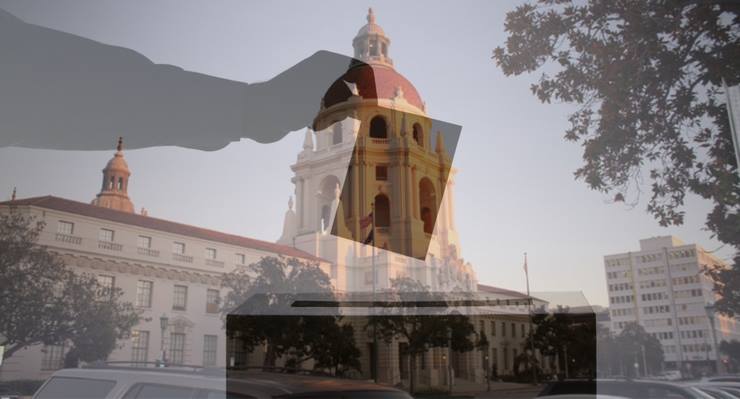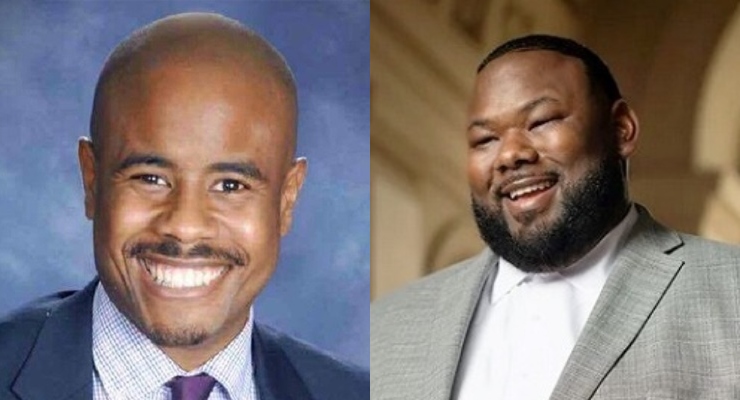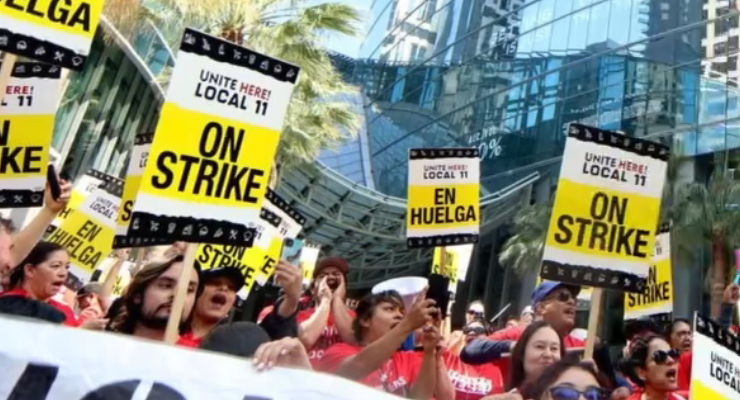 After secretive and opportunistic public policy-making for six years on whether police officers will be advantaged compared to other witnesses by getting an early look at video of their shootings, Pasadena under interim City Manager Steve Mermell is moving to a somewhat more open process to decide public policy – but it still carries forward elements of the past secretive public policy determination. The issue being debated at tonight’s Public Safety Committee meeting is whether public policy on the December body cameras roll-out will be decided by a process that is a stacked deck against the public or whether it will be fully transparent and fair to the public interest.
After secretive and opportunistic public policy-making for six years on whether police officers will be advantaged compared to other witnesses by getting an early look at video of their shootings, Pasadena under interim City Manager Steve Mermell is moving to a somewhat more open process to decide public policy – but it still carries forward elements of the past secretive public policy determination. The issue being debated at tonight’s Public Safety Committee meeting is whether public policy on the December body cameras roll-out will be decided by a process that is a stacked deck against the public or whether it will be fully transparent and fair to the public interest.
6-years making secret public policy
In August, 2009, the Office of Independent (“OIR”) Group Report on the Pasadena Police Department’s LeRoy Barnes killing recommended that police officers, like all witnesses, should not view video of an incident before giving their statements in the incident’s criminal investigation. 5 months later the Pasadena PD signed a secret agreement with its sergeant and rank-and-file unions that purported to require the PD to do the exact opposite of the OIR Group’s recommendation by giving officers the videos before their criminal investigation interviews. This secret 2010 agreement was not disclosed at the time to the City Council and, in violation of Pasadena City Charter §1001, it apparently was not approved by the City Attorney.
In 2012, the Pasadena PD shot and killed another African-American youth, the unarmed Kendrec McDade. The OIR Group Report’s recommendation on that shooting were first transmitted to the PD in 2013 but not disclosed to the public. Those OIR Group recommendations reiterated the 2009 recommendation that officers see the video only after they give their criminal investigation statements. The Pasadena PD kept the OIR recommendations bottled up until the summer of 2014, when City Manager Beck announced that only the OIR recommendations would be released. After a public outcry about such limited release and City Council Member demands that the report be released to the maximum extent permitted by law, we filed Public Record Act (“PRA”) requests for release of the Report – as did various media including the LA Times. Faced with the deadline to respond to those PRA requests, City Attorney Michelle Bagneris invited the police officers union to file suit, which it dutifully did. That lawsuit continued to bottle-up the OIR Group Report.
On May 29, 2015, while the PRA lawsuit was on appeal, the Pasadena Police Department adopted a use of force policy which implemented the secret 2010 agreement with the police unions. Insofar as we can determine, the City Council and its Public Safety Council were not consulted on, were not advised about, and were not asked to review that policy. Rather, it appears that the only arguable disclosure was an information item on the Public Safety committee agenda noting that Police Department policies were online.
The OIR Group McDade shooting Report ultimately was released in 2 stages in mid-November and December 1, 2015. For the marathon City Council meeting on December 7, 2015, Chief Phillip Sanchez provided a written Response quarreling with the OIR Group’s recommendation that the City revisit the 2010 agreement and adopt the interview-first/video-after policy; his Response for the first time transmitted to the Council the secret 2010 agreement and the 2015 use-of-force policy implementing it.
The road ahead – a stacked deck against the public interest
The current process set by the City staff is the following: The Police Chief and HR will “meet and confer” with the police unions on a body cameras policy. The City staff will adopt a policy that will be disclosed to the Public Safety Committee for its March 21 meeting. Newly-appointed interim City Manager Steve Mermell will be the ultimate decision-maker on the policy that the staff will adopt and disclose to the PSC and the public. Mermell has invited civil liberties activists (including the authors) to provide him their input at a meeting with them on February 24.
We applaud the new City Manager for the greater transparency and openness he has brought to the process – his disclosing the decision-making process, his inviting public input through hearings before the PSC, his seeking a meeting with us to get our input into the policy, and his commitment to contemporaneously disclose the staff’s policy decisions rather than keeping the policy secret or burying it in an opaque announcement. All of these are significant, but they still leave a stacked deck against the public interest.
A fairer and more transparent approach: let the Council decide
The City Council should decide in the first instance the important public policy disputes on body camera policy; they should not be decided by an imperial executive. City staff should not confront the City’s democratically-elected representatives with the fait accompli of an implemented policy that the City Council has to reverse. Rather, the staff should refer disputed issues to the City Council to decide. The voters in City Charter in §604(J) have provided that “[i]t shall be competent for the City Council to instruct the City Manager in all matters of policy…” It is consistent with that mandate for the City Manager to seek instruction from the City Council to decide hotly-disputed public policy matters rather than acting imperially to implement a policy and then dare the City Council to overrule him.
Police union input, but not a special seat at the table
The police unions are doing what they would be expected to do – i.e., seeking the most favorable body camera policy for their members irrespective of the public interest. The police unions’ voices need to be part of the dialogue, so the City Manager or the Chief getting their input is as important as getting our public interest input. But the police unions are being given a special place at the table by the Chief “meeting and conferring” with employee unions. Meeting and conferring is a statutorily-mandated process under California law for employers and unions to negotiate on wages and working conditions. There is a duty to bargain in good faith on wages and working conditions, and there are legal consequences to not doing so. But there is no duty to meet-and-confer with employee unions on fundamental management decisions and policy matters such as the policy for body cameras. Moreover, there appears to be nothing to negotiate because Chief Sanchez has already repeatedly allied himself with the police unions on camera video policy; their “negotiation” is the equivalent of the police department going into a phone booth to call itself on the phone for negotiations with itself. The proper treatment is not to put the police unions on a special path to decision-making but to hear their concerns in the same manner as the rest of the public.
Dale Gronemeier and Skip Hickambottom are local civil rights attorneys who successfully litigated the PRA lawsuit to release the OIR Group Report on the McDade shooting.














 0 comments
0 comments


